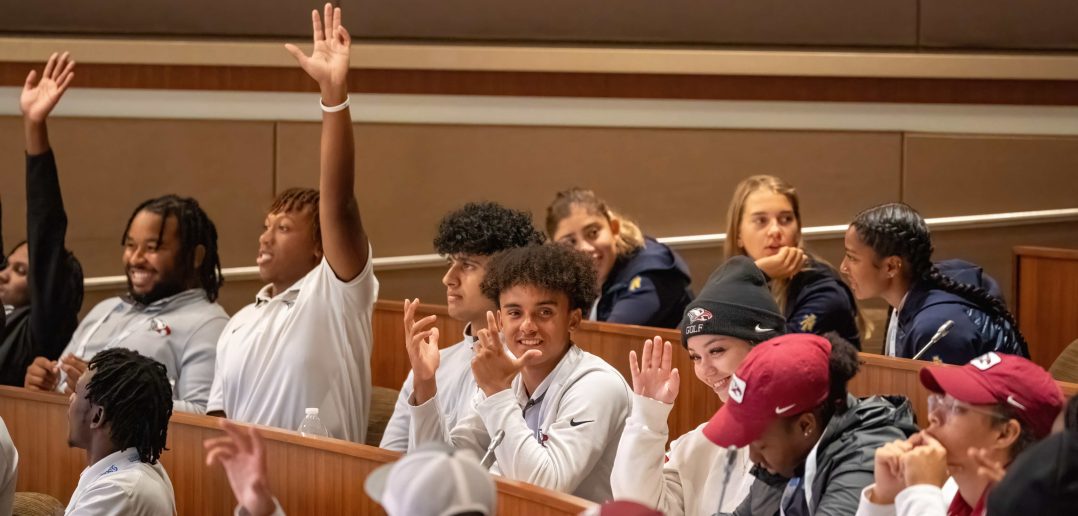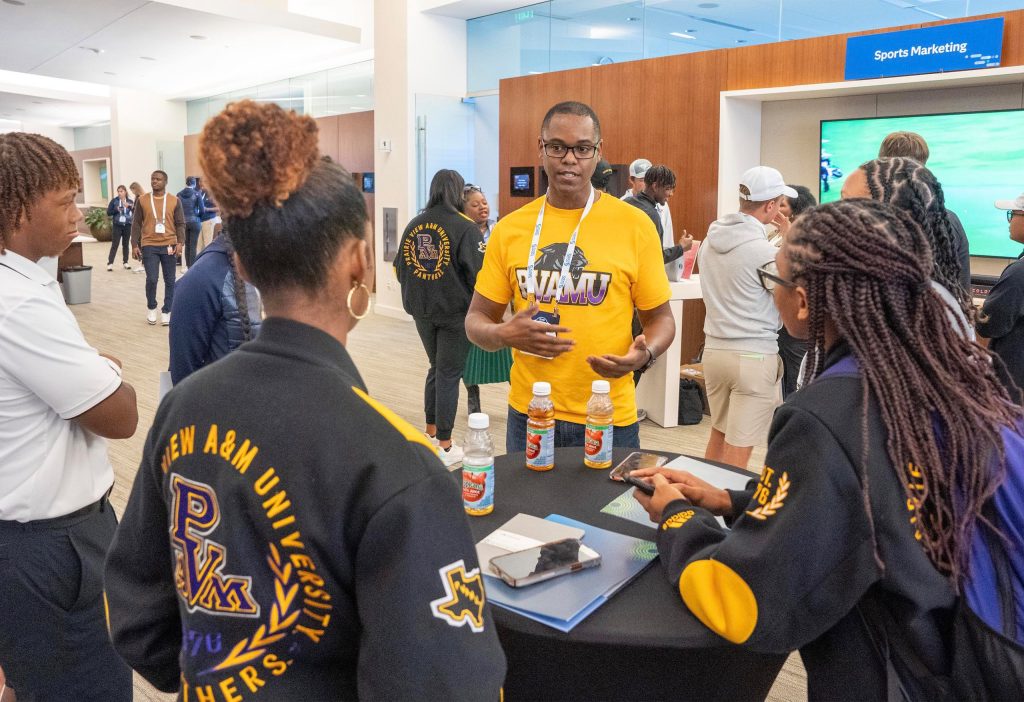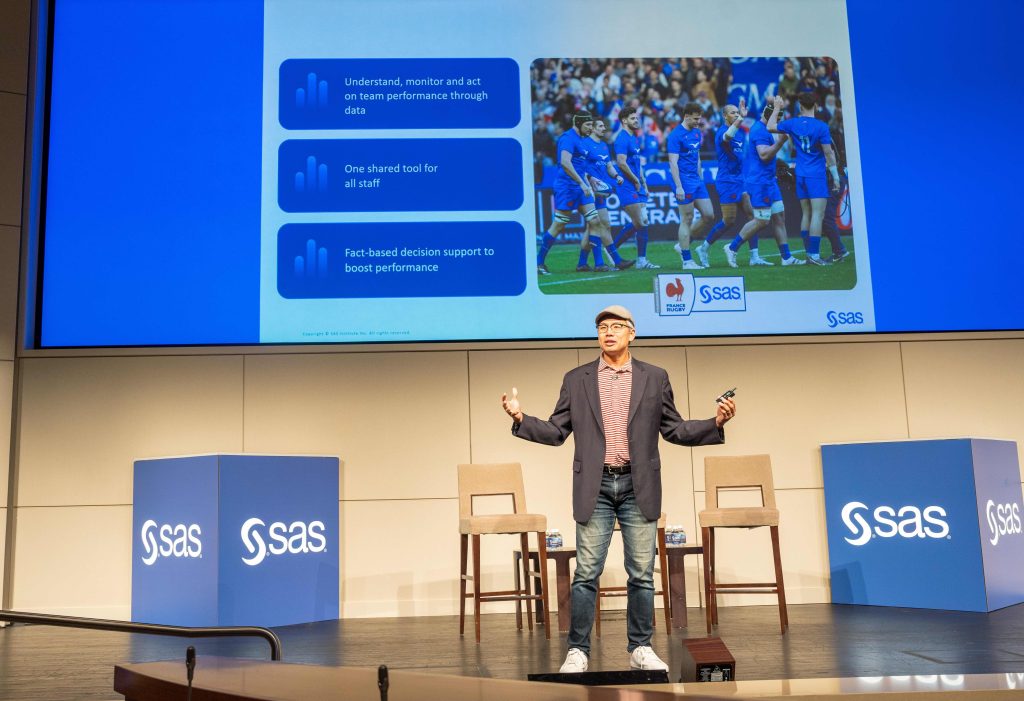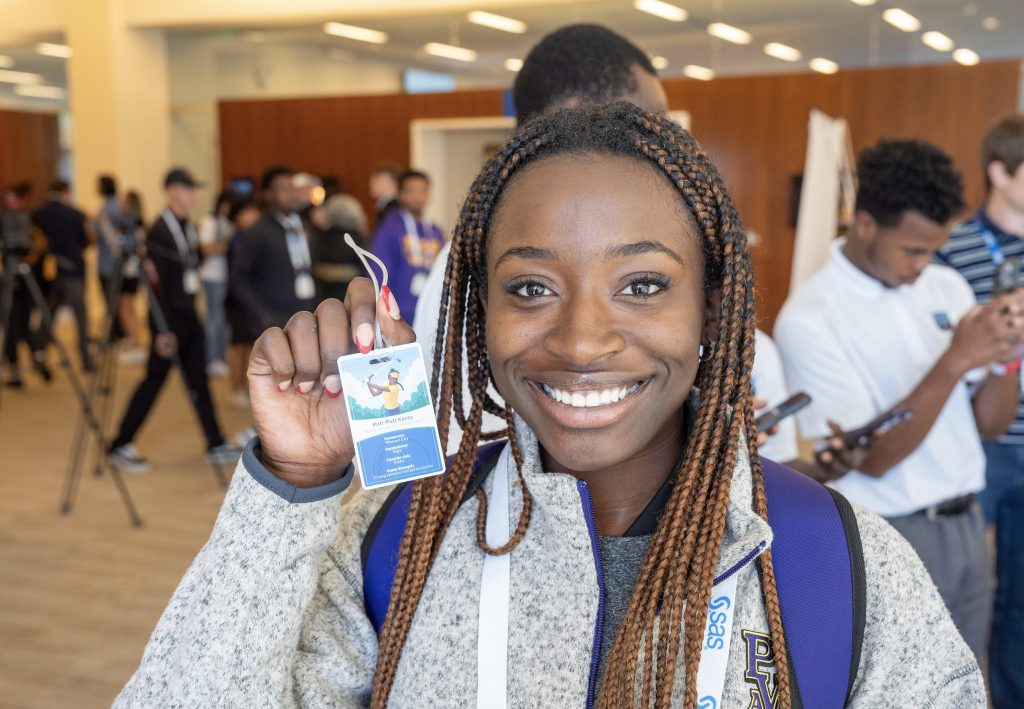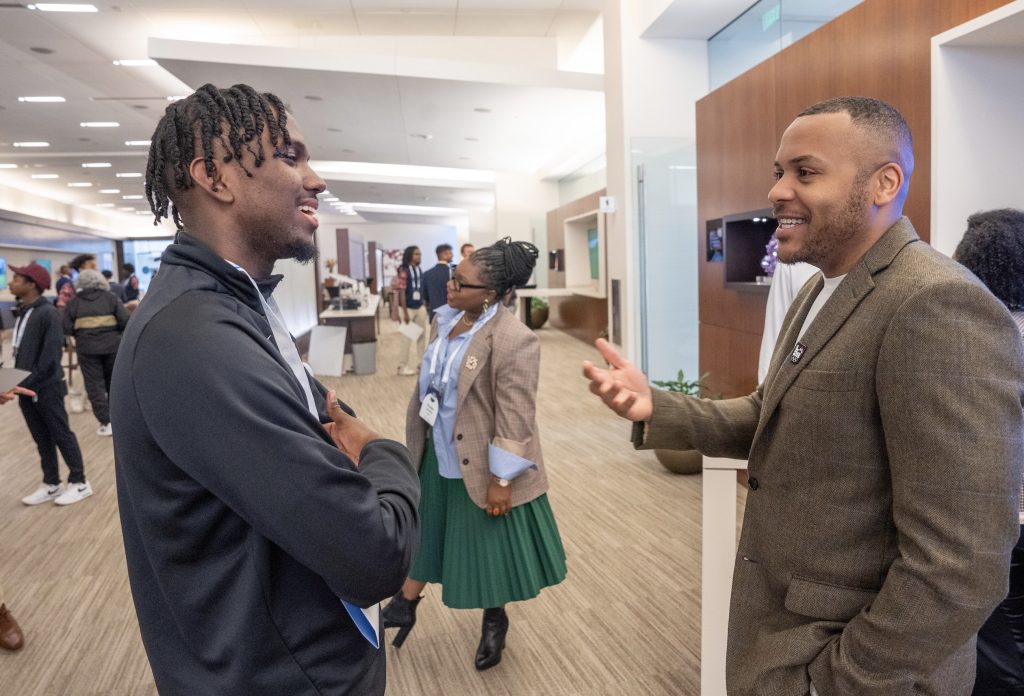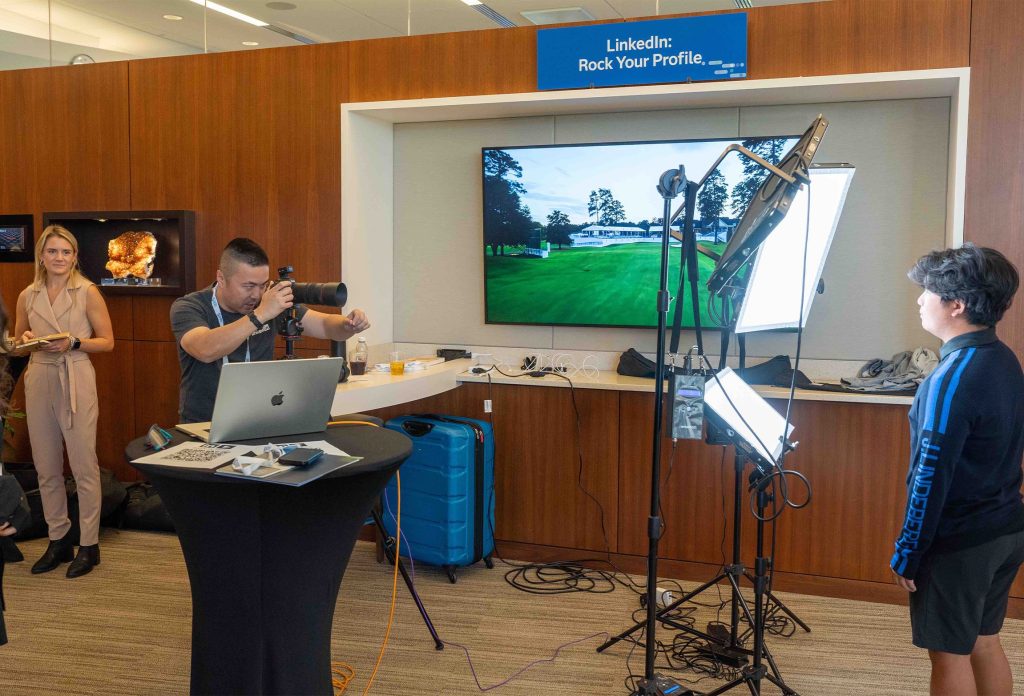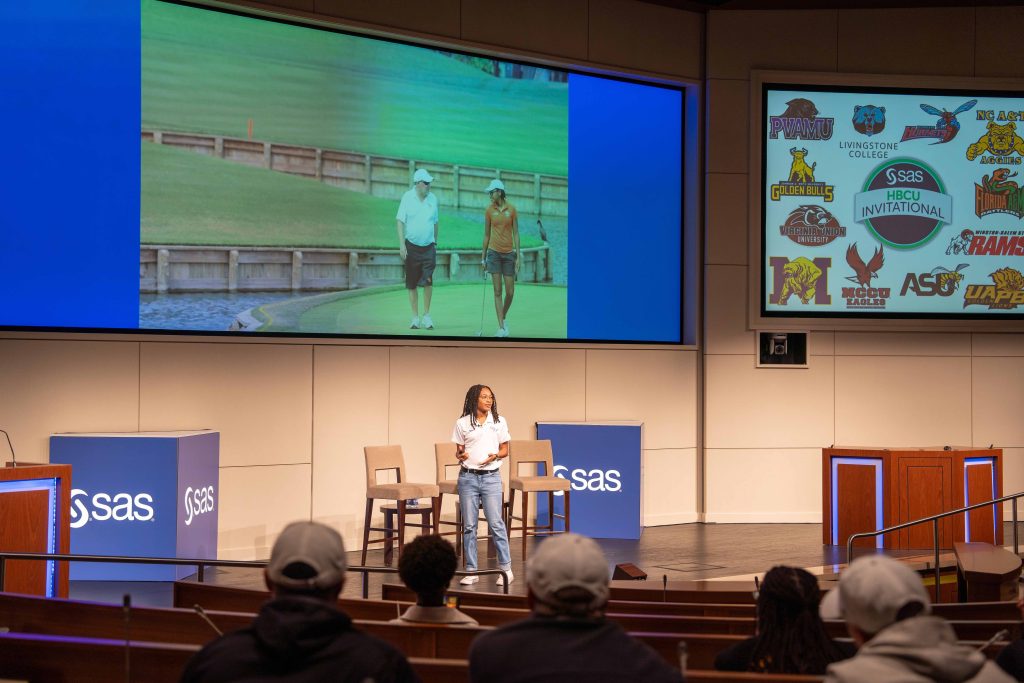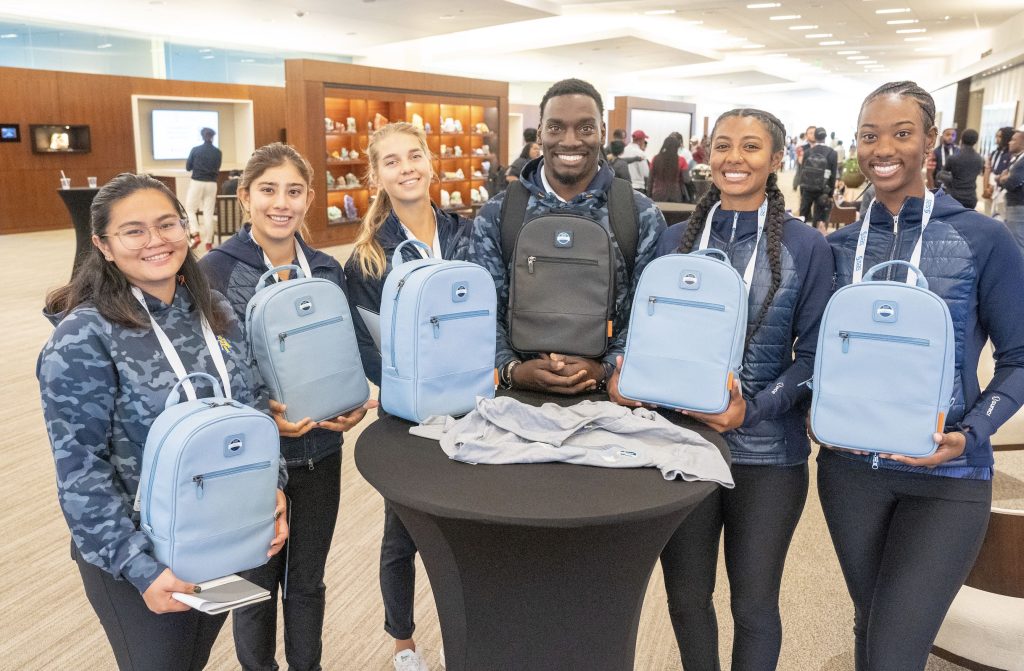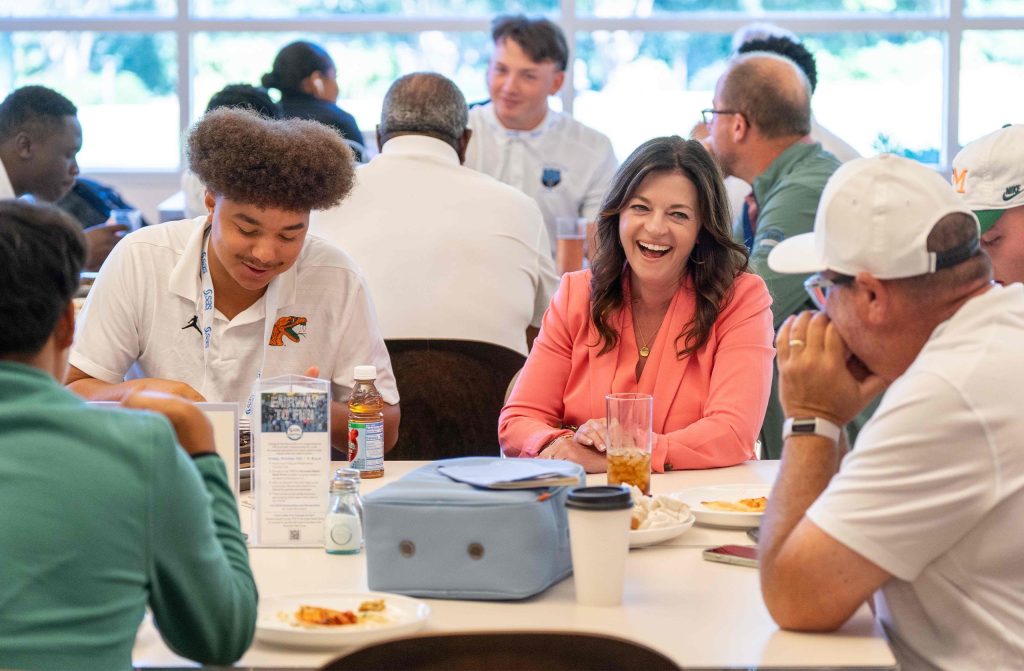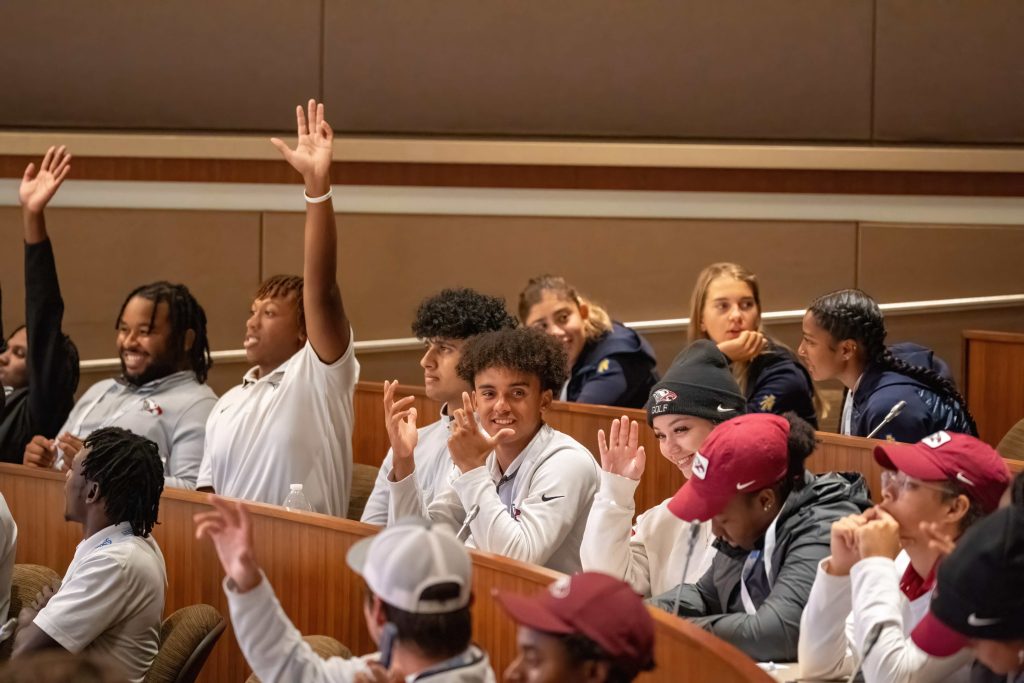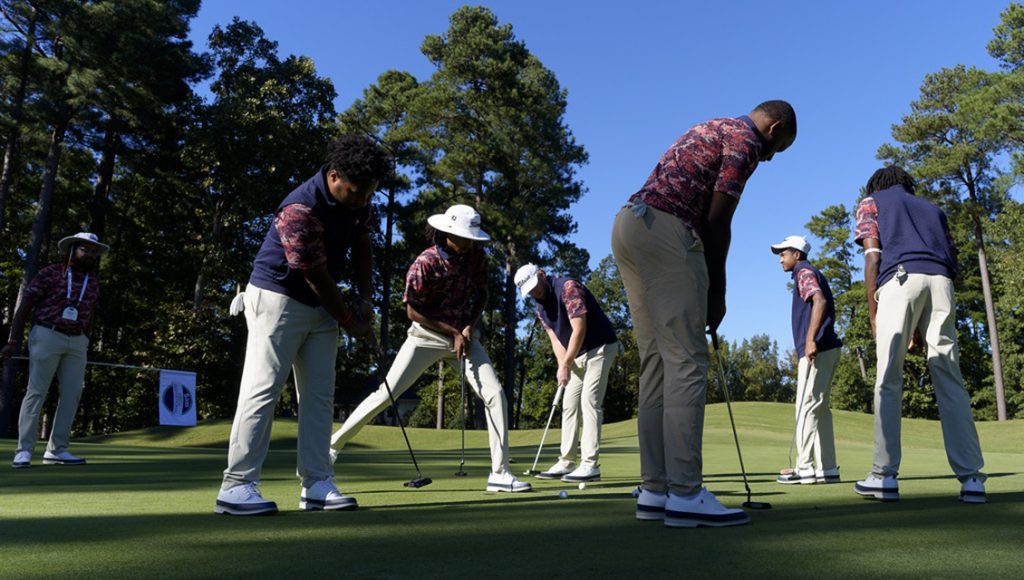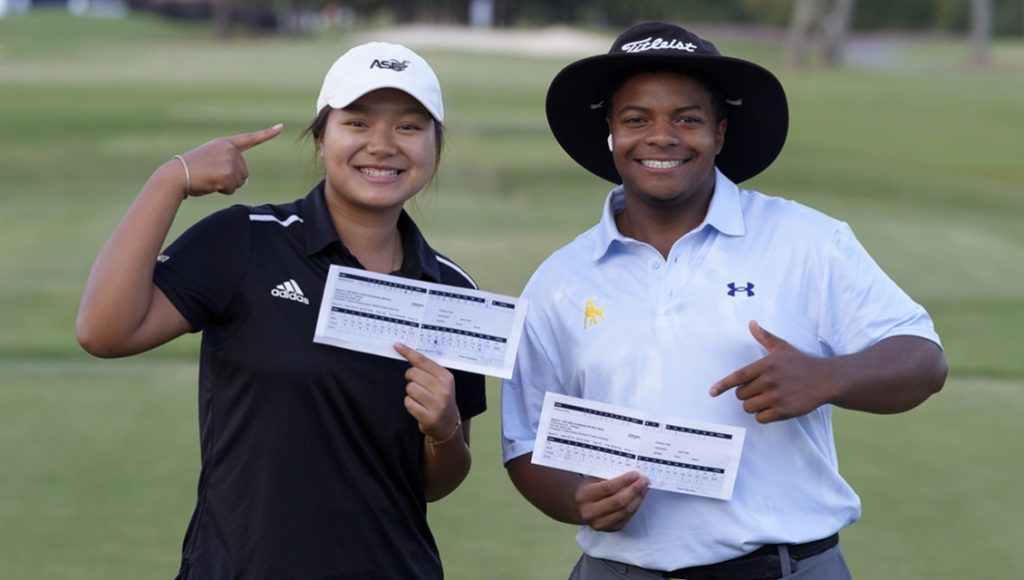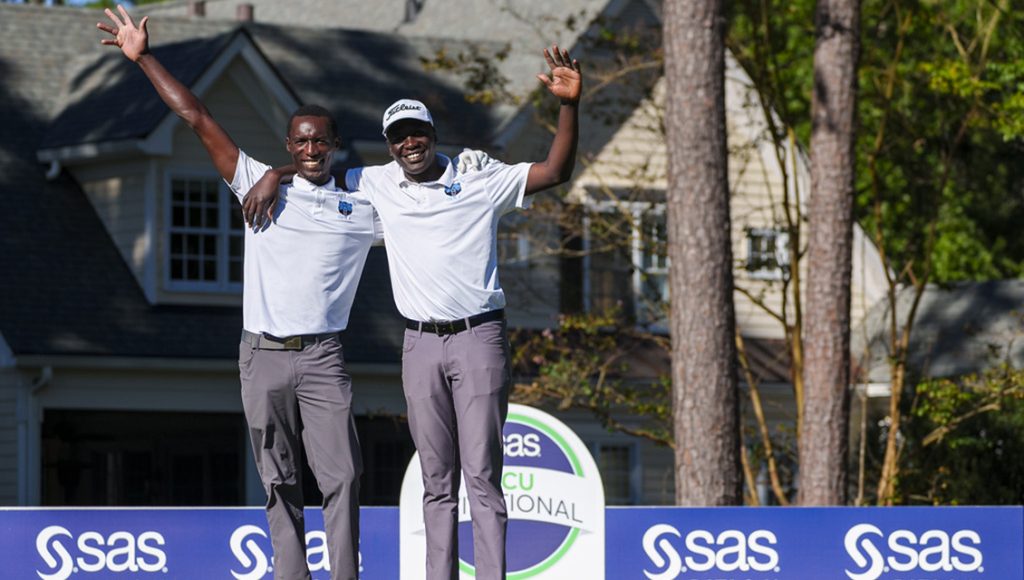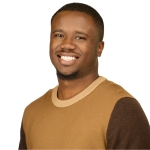Witnessing future golfers in action is a rare treat and that's exactly what the SAS HBCU Invitational offers.
However, the event is about more than just golf. This year, student-athletes also participated in the third edition of the SAS HBCU Career Day, a key feature of the SAS Championship.
The power of exposure for student-athletes
As I walked around career day, speaking with students, coaches and some of my colleagues, one word kept surfacing – exposure. This event is an investment in both individual futures and the larger ecosystem of opportunity.
One of the most memorable moments was a conversation with Livingstone College’s head men’s golf head coach, Andre Springs. He couldn’t have summed it up better when talking about the event when he said, “It’s like a kid being in a candy shop. Everywhere you look, there’s something for everyone to do or learn about.” He’s seen it all in his career, and for him, the significance of this Invitational goes beyond the swings on the golf course.
"Exposure is outstanding," Springs said. “When these young athletes graduate, they're looking for jobs. This is an opportunity to give them that exposure and meet people who can offer opportunities beyond golf.”
Springs knows that golf may not be the endgame for everyone, but events like this open doors to so much more. Whether it's business, tech, or other fields, these students are getting a glimpse into their future.
Learn more about what else SAS is doing with HBCUs
The importance of listening and leadership
Then there’s Charles Penny, men’s golf head coach at Winston-Salem State University, who brought a different kind of wisdom to the event. He emphasized the importance of understanding each athlete’s goals: “I will always make sure to hear the goals of the athletes. A coach is someone who helps you get somewhere you couldn’t get on your own. I pride myself on not projecting my own thoughts and goals but allowing them to have influence on what we do.”
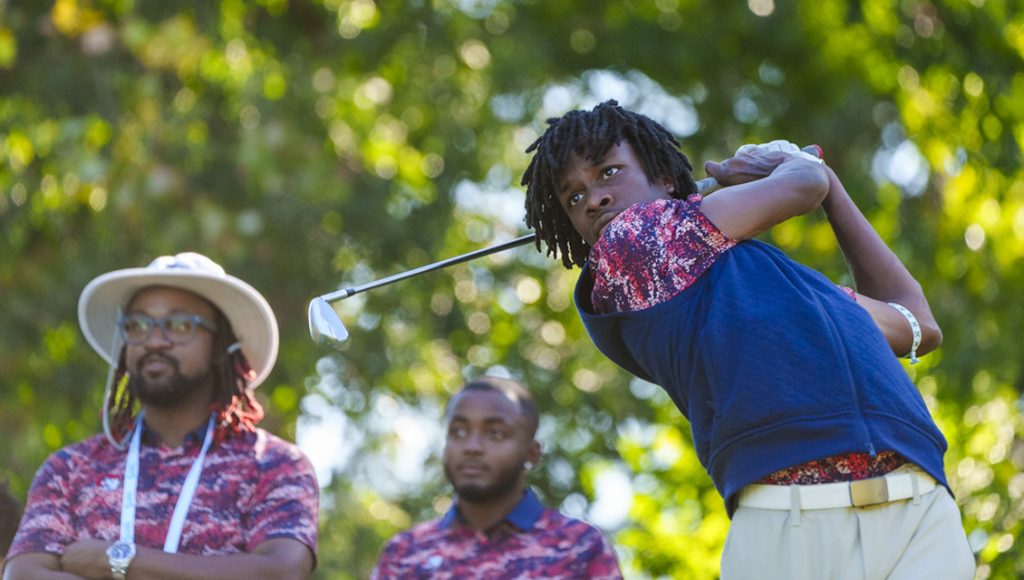
When discussing accountability among teammates, Penny shared a practical approach: “I talk to them and say, ‘Hey, I need for you to check on your team.’ It’s one thing for a coach to be on top of it, but when they hear it from a peer, they feel accountable to themselves and to the team.” Collaboration and communication are just as crucial off the course as they are on it.
Penny also highlighted how important it is to balance academics and sports.
“At our school, there's a mandatory study hall requirement based on GPA. There’s a competition that most people don’t hear about and that’s the team with the highest GPA at the end of the year. I want that award because it emphasizes that we are academically astute.” His passion for creating a culture of excellence both in the classroom and on the golf course is inspiring.
Also, navigating challenges is a part of any athlete’s journey and Coach Penny knows it well. He told me, “You have to have compassion. Sometimes the attitude you receive isn’t because the kid is trying to be difficult; they might have just had a bad day.” This understanding approach is what sets great coaches apart.
“I want to hear and listen – not just respond. Being able to listen to understand what they’re going through is crucial,” he said. This kind of empathy fosters a supportive environment, helping student-athletes feel seen and heard.
Where golf meets tech
It wasn’t all business talk, though. Jalen Brown, a golfer and IT major from North Carolina Central University had a unique view on how these two seemingly different worlds come together.
“Golf’s pretty big on technology now,” he told me, mentioning apps that track stats and suggest areas for improvement.
Brown, who balances a full academic scholarship with his golf, told me how the discipline required on the course translates perfectly to his IT studies. “You get what you put in,” he explained, echoing the mindset that all these young athletes seem to carry with them.
Building bridges for future generations
Alex Boyake, Vice President of Solutions Development at SAS, described the event as a long-term investment: “We know that diverse teams do better than homogeneous ones and so we're investing for the next 20, 30, 40 years for SAS.”
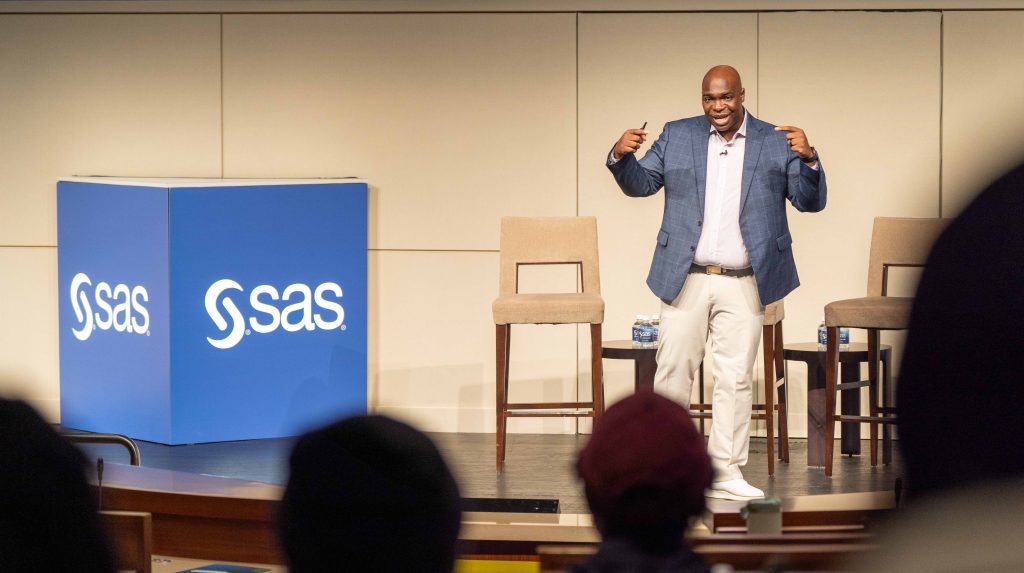
He emphasized that this isn’t just a feel-good event but a strategic move for SAS to create a more inclusive and effective workforce.
Danielle Pavliv, Chief Diversity Officer at SAS added a personal touch, explaining how the HBCU Career Day is about more than just exploring careers. “This day is about providing students with personal and professional resources as they consider their futures. SAS is giving them a great opportunity to create lasting connections with both golf and business professionals.”
“It’s a sense of connection, community and family.”
What makes the SAS HBCU Career Day and Invitational so special is how it brings everything full circle.
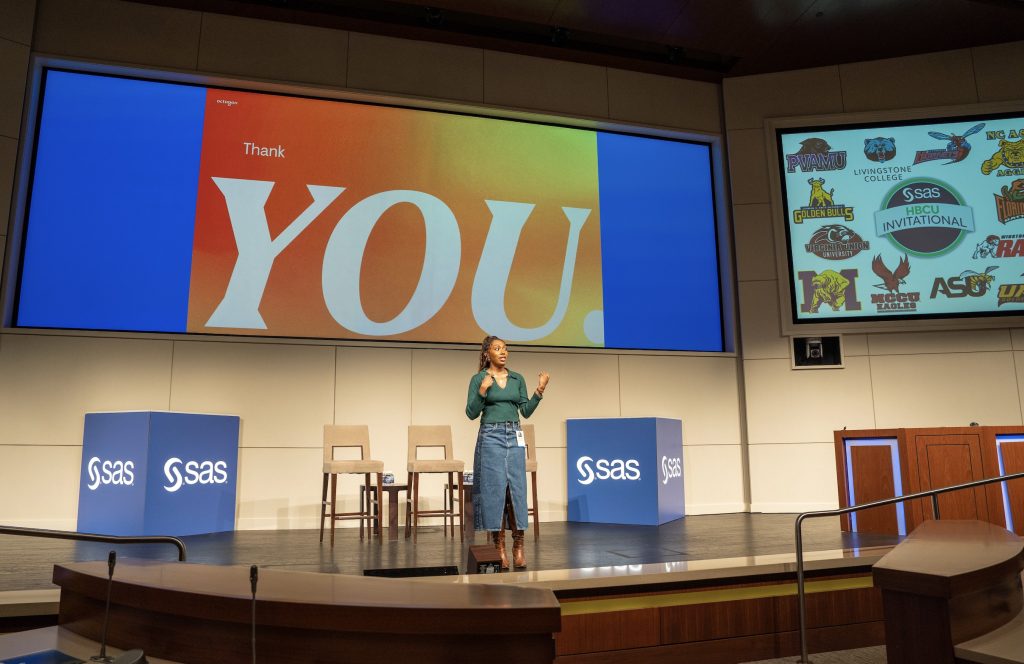
Host Jaylen Jeffreys, a North Carolina A&T State University graduate and SAS DEI Talent Intern, spoke highly of the opportunity and the importance of giving back to the next generation. You could feel her excitement as she talked about hosting the event. “It’s a sense of connection, community and family,” she said, smiling. “Seeing the players, their enthusiasm...it was just amazing to be part of settling their nerves and getting them excited.”
Jeffreys shared how important it was for her to help her peers, opening doors for students to find internships and align their passions with their career interests. “It feels like I’m actually giving back to my alma mater,” she said, which really drives home the spirit of the day – this isn’t just about one career or one event – it’s about creating a cycle of success.
Boyake summed it up perfectly: “We have a long history of giving back to the community, and by doing this, we’re building bridges with HBCUs, allowing students to see our company and meet our employees. This helps us hire strong, diverse talent.”
At the end of the day, what makes the SAS HBCU Career Day and Invitational so special is how it brings everything full circle. These student-athletes aren’t just learning about career opportunities; they’re building networks, honing life skills and – most importantly – seeing what their futures could look like.
Results of the HBCU Invitational
Talk about down to the wire! The third Annual HBCU Invitational did not disappoint, as the winners were decided following a 3-hole playoff. The HBCU Invitational saw 15 teams from Historically Black Colleges and Universities from around the United States. Here is a full list of our winners:
Team (number of wins)
- Men’s DI: Arkansas-Pine Bluff (1st win)
- Men’s DII: Livingstone (2nd consecutive win)
- Women: Alabama State (1st win)
Individual (School)
- Men’s DI: Miguel Ilas (Florida A&M)
- Men’s DII: Ibrahim Aliga (Livingstone) – 2nd consecutive win
- Women: Tori Mouton (North Carolina A&T)
- SAS’ Charles Phillips Prairie View A&M alum talks with fellow Panthers.
- I-Sah Hsieh chats with student-athletes about AI in sports
- Student-athletes got a chance to make their own AI golf bag tags
- Student-athletes learned about sports marketing from Octagon
- Need a new headshot? LinkedIn reps were on-site to take professional photos
- SAS’ Kayla Jones talks about her journey from sports to SAS
- New bags for the squad!
- SAS Jenn Mann talks with student-athletes during lunch
- Where’s all the Eagles at?
- Winston-Salem State University golfers warm up for their round.
- Alabama State University men’s golf team wins the HBCU Invitational.
- Livingstone College golfers smile for the camera.
